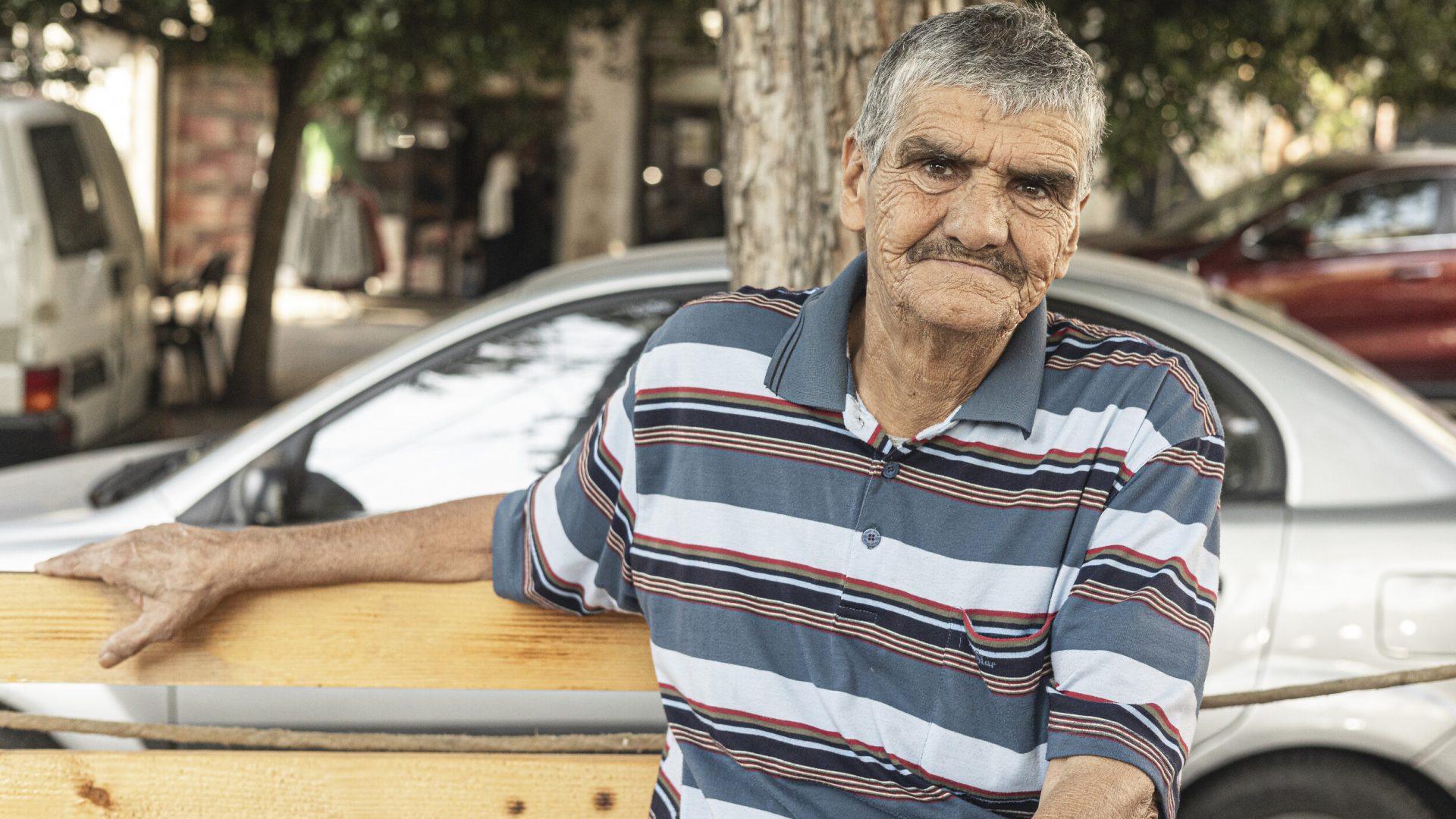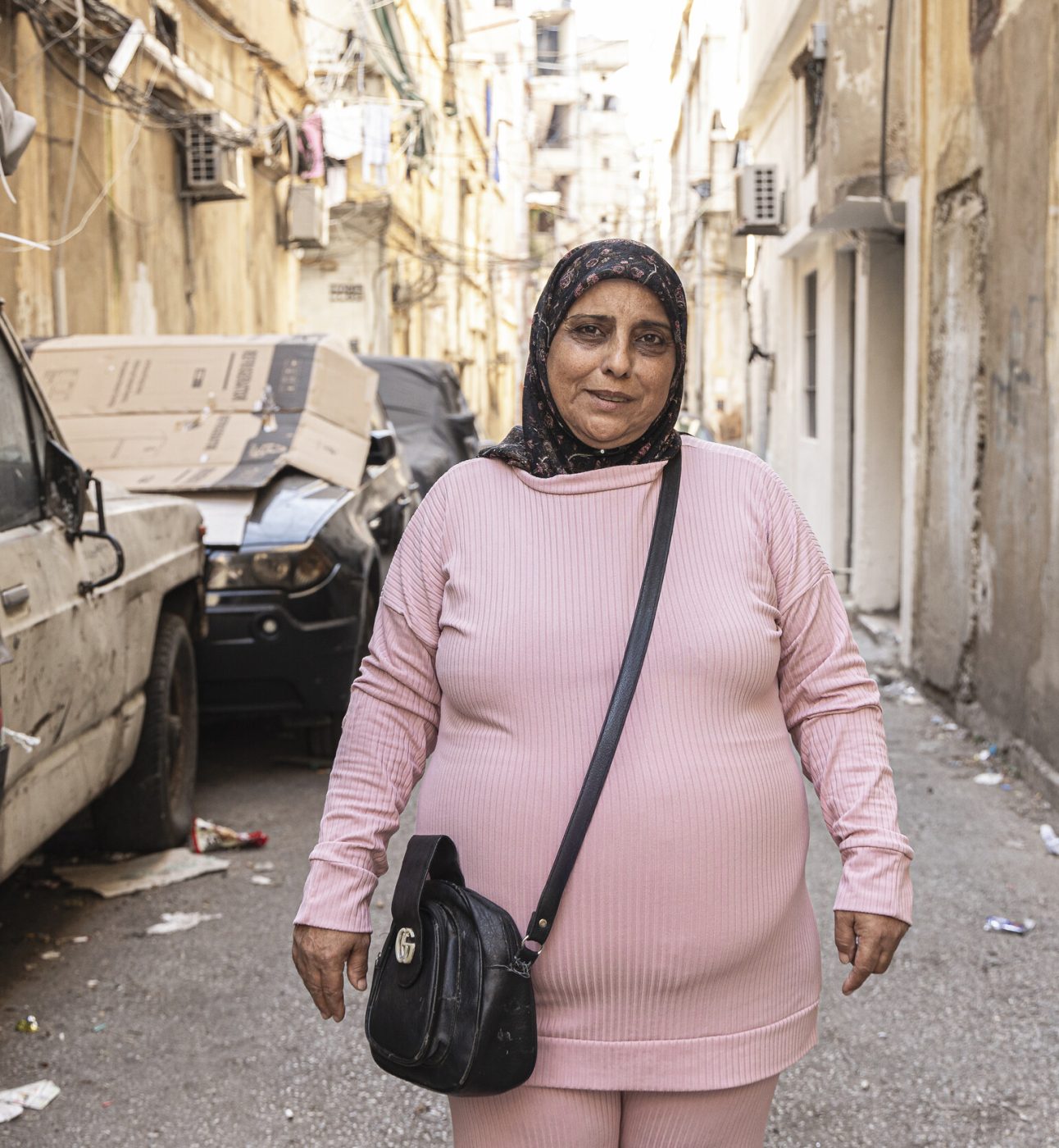Key findings
Access to aid
Nearly two-thirds of older people (61%) said they received no humanitarian assistance after the conflict. Even during active hostilities, 39% reported being completely left out of the aid response. Only 12% of those who received aid said it met their needs.
Healthcare gaps
Almost half (48%) said they could only access healthcare services irregularly, while 17% had no access at all. Medications, general health care, and dental services were among the top unmet needs.
Mental health strain
Mental health challenges were prevalent. 39% described their mental health as poor or very poor, and 59% had no access to psychosocial support. Loneliness and isolation were common, with over half (52%) of older people saying they did not participate in any community activities.
Disability and exclusion
More than a third of those surveyed had at least one disability. Many lacked the assistive devices they needed, such as glasses, crutches, or hearing aids – further limiting their independence and increasing protection risks.
Lack of voice
Despite their experience and resilience, older people were overwhelmingly excluded from planning and decision-making. Over half (51%) said they were not consulted by any humanitarian actors. Yet 65% said they would like to be involved in future efforts.
“We want to help rebuild,” said one older man from South Lebanon. “But no one asks us what we can do. They only see our age.”
Recommendations
The report calls on humanitarian agencies, donors and local authorities to:
- Include older people in emergency planning and decision-making
- Strengthen age-friendly health services and mental health support
- Provide accessible aid delivery, including door-to-door support
- Tackle ageism and improve accountability mechanisms
- Recognise and support the role of older people as caregivers, leaders, and contributors to community resilience
Locally led, age-inclusive responses
Amel and IDRAAC – both long-standing partners of HelpAge in Lebanon – are central to the effort to promote age inclusive, locally led responses. Through mobile outreach teams, peer support groups, and tailored psychosocial care, they are helping older people reclaim their dignity and voice.
“With just a little help, they rebuild their lives,” said Nathalie Akilian, Head of Operations at IDRAAC. “They don’t want pity. They want to be seen, heard, and respected.”
Since 2014, HelpAge International has partnered with Amel Association International to enhance health and community-based services for older people in Lebanon. This long-standing collaboration led to the establishment of Amel’s dedicated Ageing Unit focusing on research, advocacy, capacity building, and community engagement to address the unmet needs of older people. Through mobile clinics and psychosocial support activities, the Unit is working to reduce isolation and improve access to health services for older refugees and Lebanese hosts.
The partnership with IDRAAC (Institute for Development, Research, Advocacy and Applied Care) initiated in 2020 to address the protection and mental health needs of older people in Lebanon, particularly following the Beirut port explosion. This collaboration has focused on delivering tailored psychosocial support, mental health consultations, mental health support, caregiver training, and awareness sessions for older people, while also working to strengthen community-based protection systems. The partnership remains active today, with ongoing efforts to promote the inclusion and dignity of older people in both emergency and recovery contexts.
A wake-up call
The Lebanon assessment is a reminder of the importance of including older people in every stage of humanitarian response and recovery. In a country where 11% of the population is aged 60 or over – the highest proportion in the Arab region – ensuring their inclusion is not only a matter of justice, but a necessity for building sustainable and resilient communities.
HelpAge acknowledges the progress made — much of it thanks to local leadership and sustained donor support — but urges all humanitarian actors to go further. In a country where older people represent more than one in 10 of the population, inclusion is not optional. It is a necessity — for dignity, recovery, and resilience.


